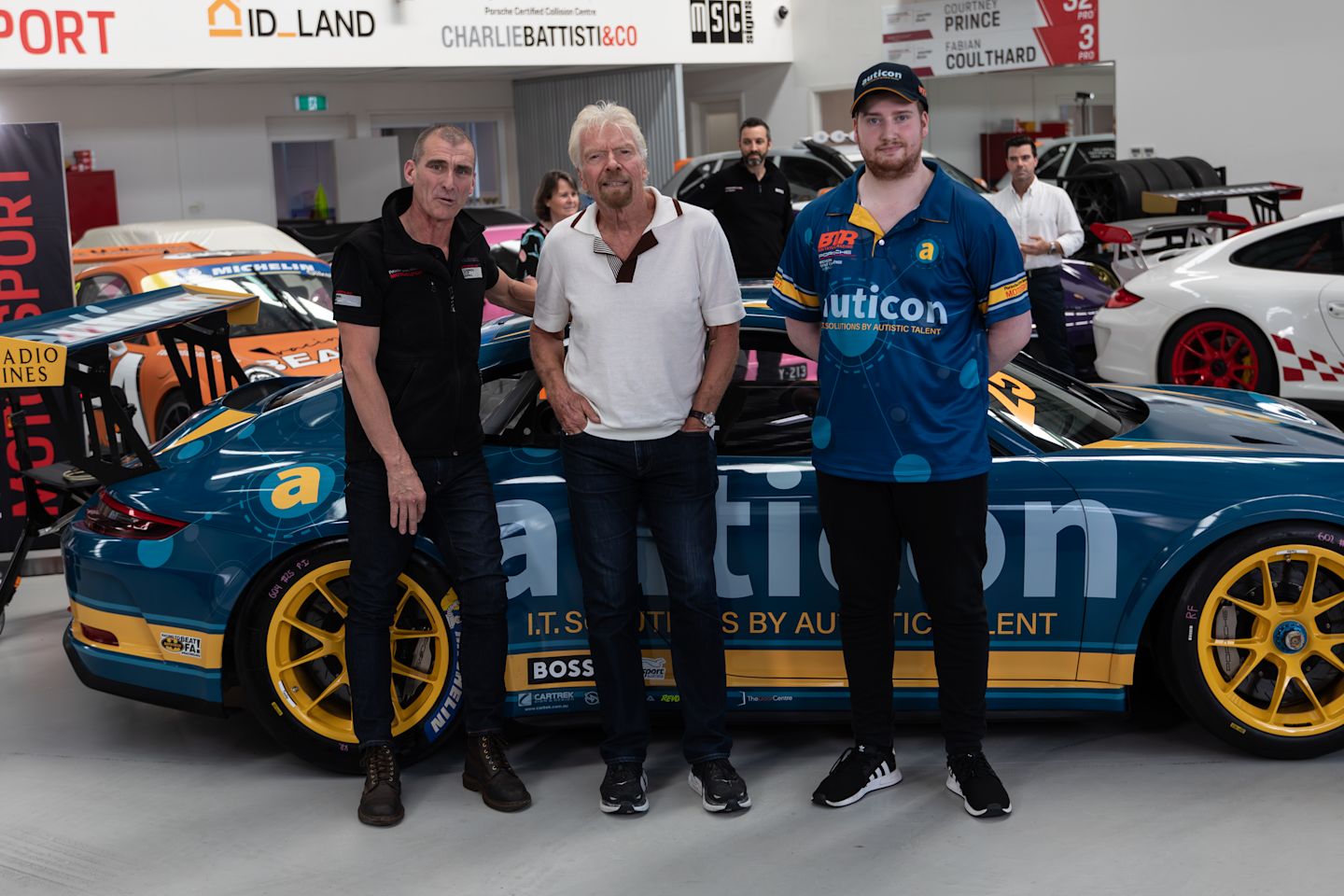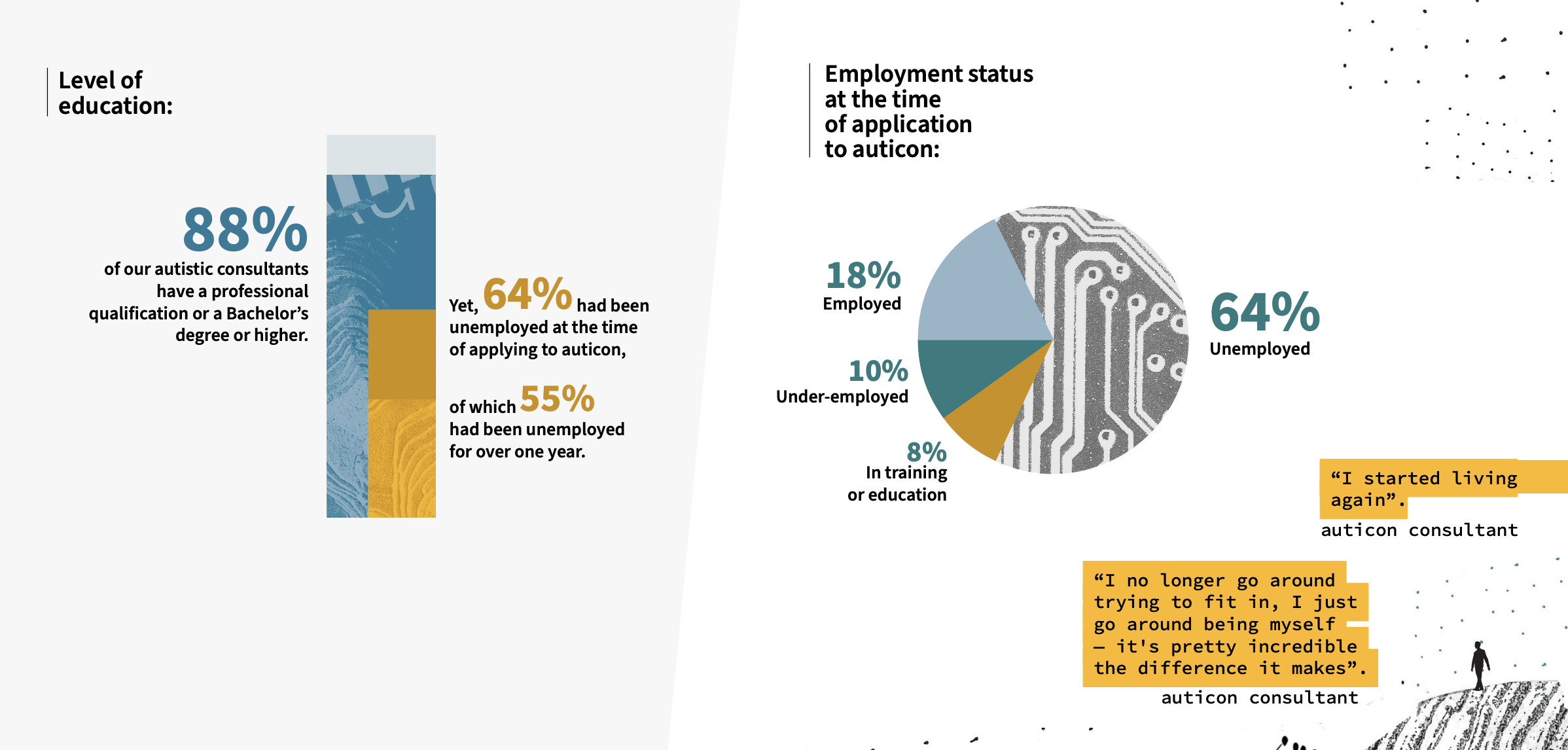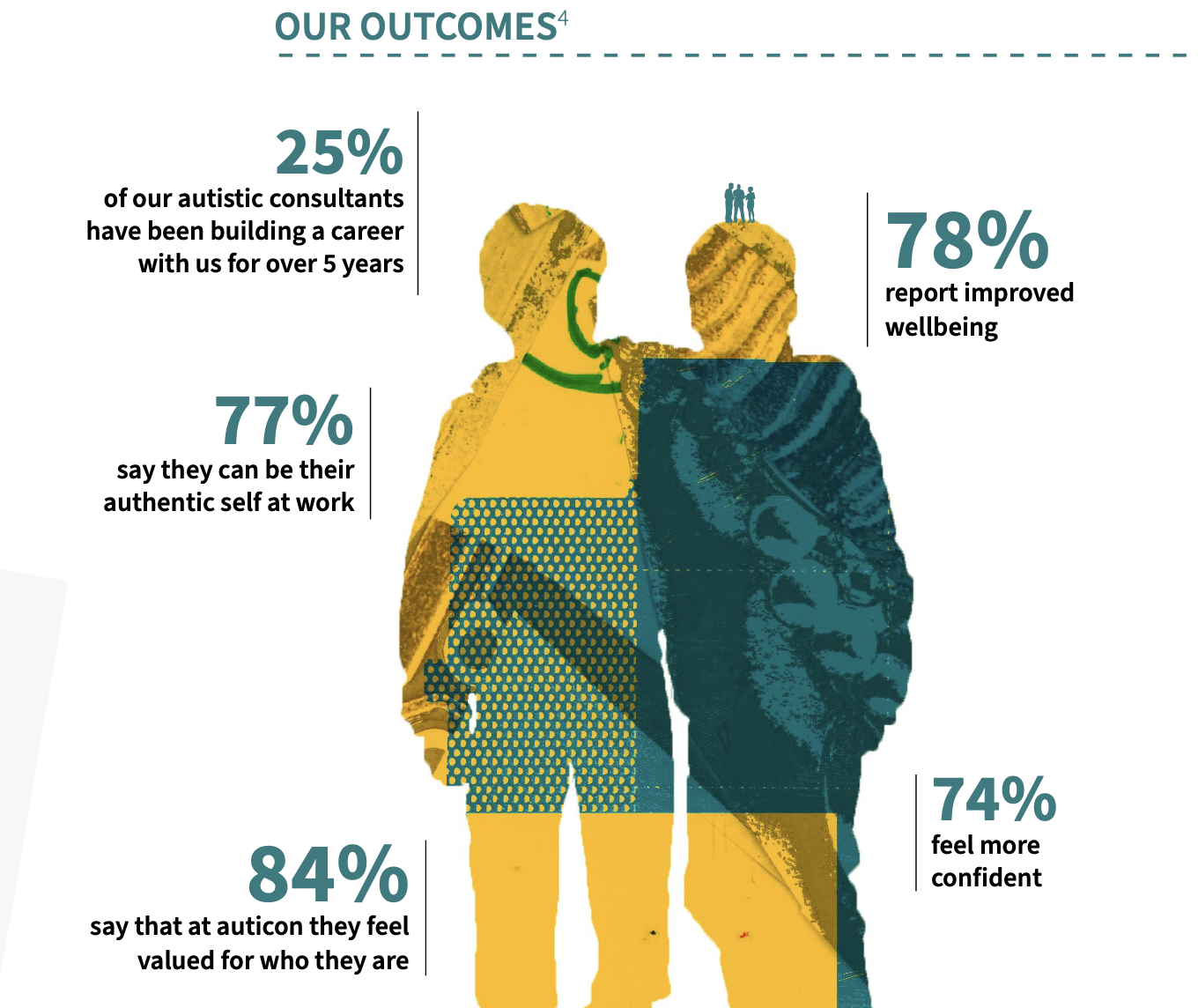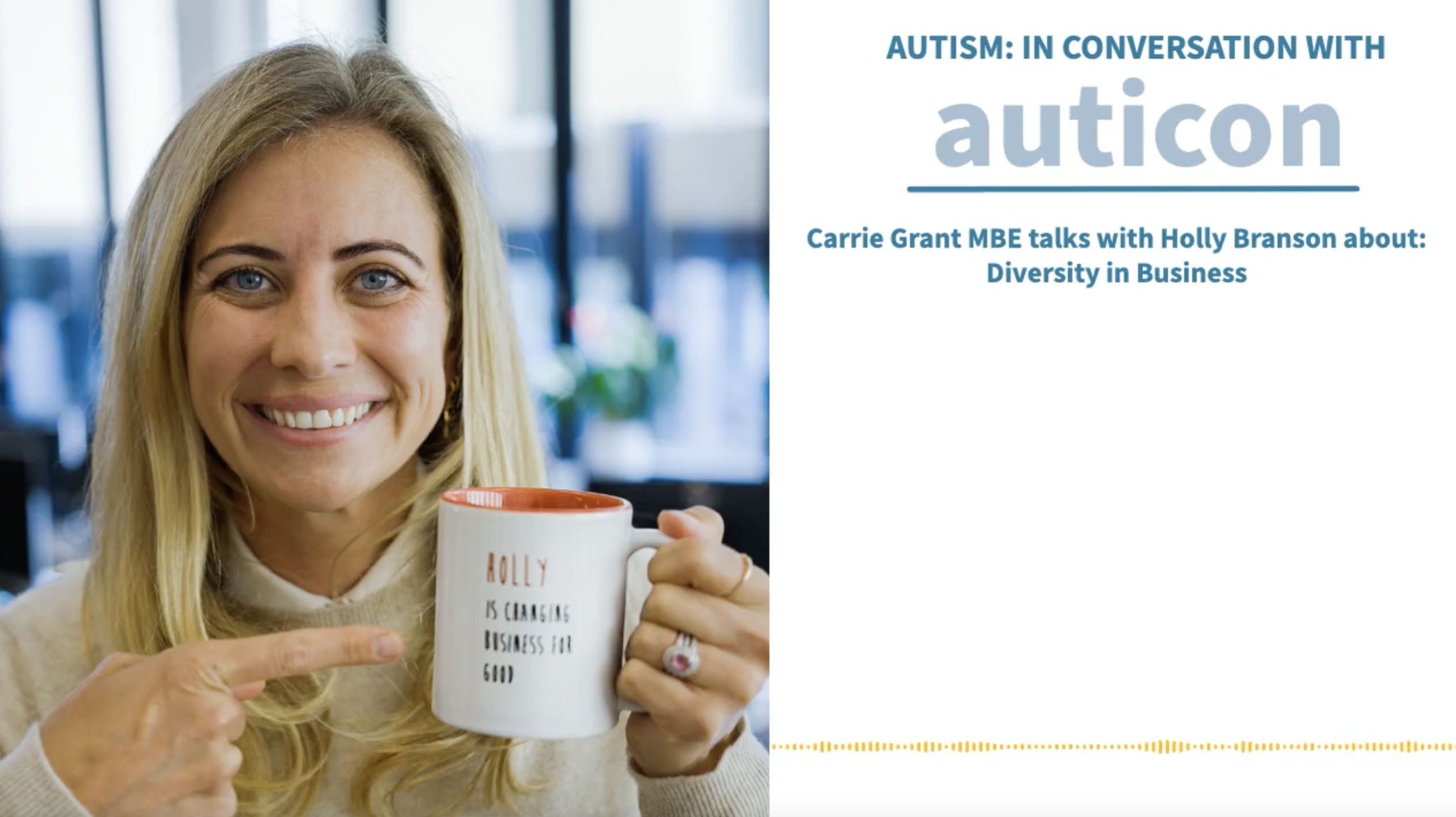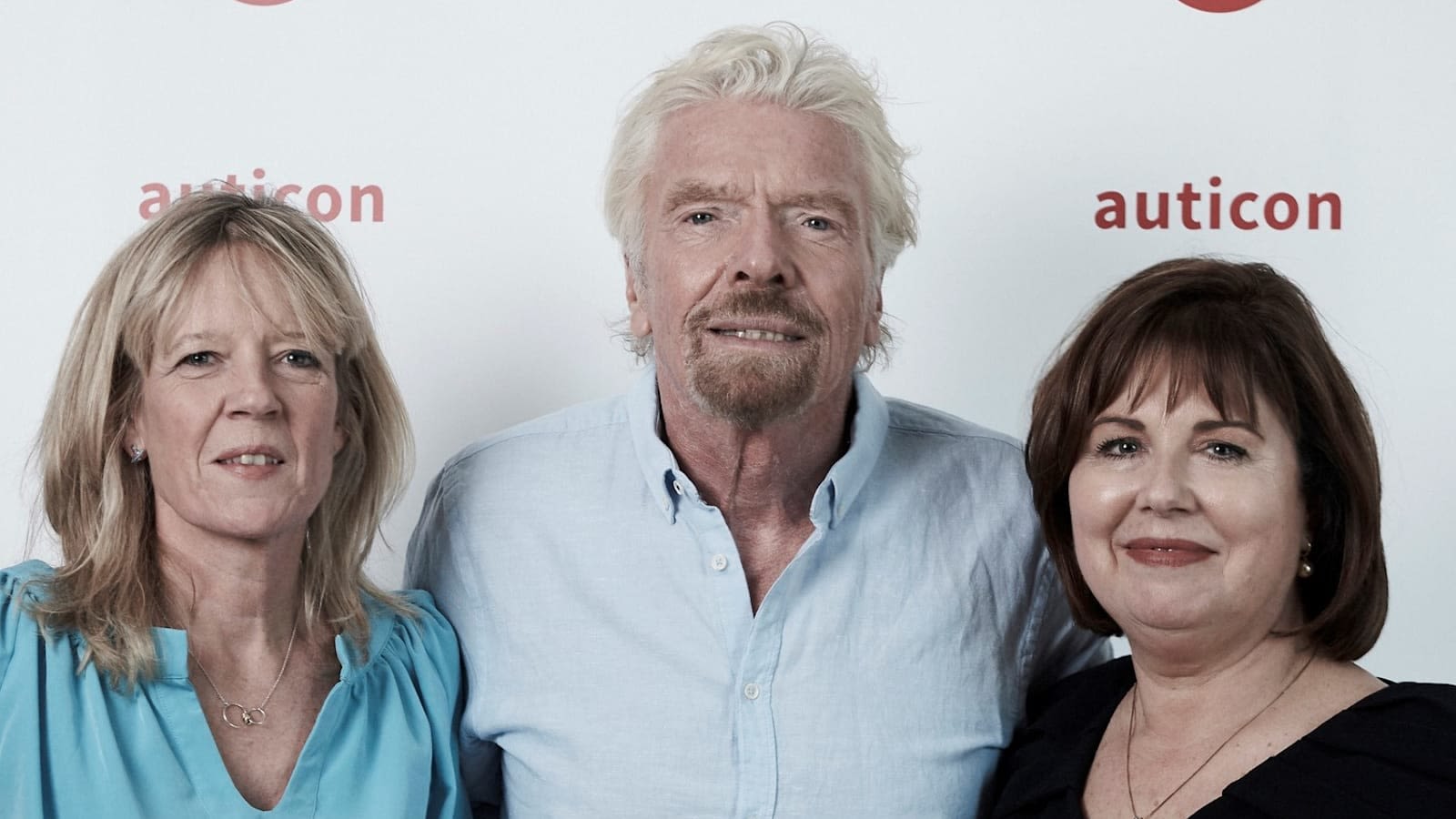How neurodivergent thinkers can close the skills gap
It’s time to challenge the outdated assumptions on who can and can’t contribute to a workplace - everyone has potential and deserves the chance to try and fulfil it.
This is why we’ve been proudly supporting auticon for many years now, and I look forward to reading their impact report every April. It’s incredible to see how, year-on-year, the organisation helps more and more autistic people find meaningful careers. In fact, since auticon unified with Unicus, it is now the world’s largest autistic-majority employer and a resource for talent.
Thankfully, the world is beginning to understand that neurodivergent thinkers contribute many unique and sought-after skills to the workforce. However, given that 15-20% of people in the world are neurodivergent (including myself as I have dyslexia), this realisation can’t come quick enough.
According to auticon’s latest impact report, only 29% of autistic people are in full-time employment. It becomes more concerning to realise that within the autistic workforce, a vast majority are working in jobs that they are over-qualified or over-skilled for.
Running parallel to this is an enormous skills gap and talent shortage as workplaces struggle to adapt to the high-tech, AI-centric future of work. As technology evolves at a rapid pace, these shortages will only become more stark in the next decade. As auticon cites in the Scaling our Impact report:
It is estimated that by 2030, the demand for skilled workers will outstrip supply, resulting in a global talent shortage of 85.2 million people. Yet employers today are unable to tap into this gifted talent pool of autistic professionals.
A brilliant way to address these concurrent issues is to unlock employment opportunities for autistic people, and help businesses understand the best ways to harness their immense talents. For workplaces that don’t know where to begin with this, engaging with auticon and integrating their technology consultants into your business, is a great place to start. The consultants can help with anything from software development to data analytics, and quality assurance engineering.
One great case study in the report comes from the Director of auticon Labs, Aleksander Oleszkiewicz. Aleksander was an adult when he discovered he was autistic, and has held several business and technical leadership roles in a career spanning 26 years. When asked about his strengths, he said: “Thinking about the most recurring theme in my career, I think it would be that I wasn’t following the crowd. I don’t mean that I was always going against the flow, but rather I was doing my own research and evaluations to select the best route. This often led me to situations of being the only one around who knew the technology, so I quickly became a go-to person for all related things and eventually became recognised as an expert.” What a wonderful trait in an employee.
Reading the report, I was also concerned to see that only 17% of autistic professionals in junior roles have an autistic role model. As a dyslexic who went through school with no diagnosis and no role models, I know how hard this can be, which is why I talk about my dyslexia so openly and honestly. It’s also why I was so happy to meet an autistic race car driver with the auticon Racing Team when I was in Melbourne last year. It so inspiring to see a young person like Ben Taylor following his dreams and helping other neurodivergent people realise they can achieve anything they set their minds to. It’s also a powerful way of showing the brilliant skills that autistic people bring to the table – particularly in terms of IT, coding, and analytics.
If you want to tap into the immense potential that autistic people can bring to your workplace, take a look at auticon’s global solutions. The team has also launched an e-learning series to help people understand what it means to be neurodivergent in the workplace and how to best work with neurodivergent colleagues. Brilliant work.
